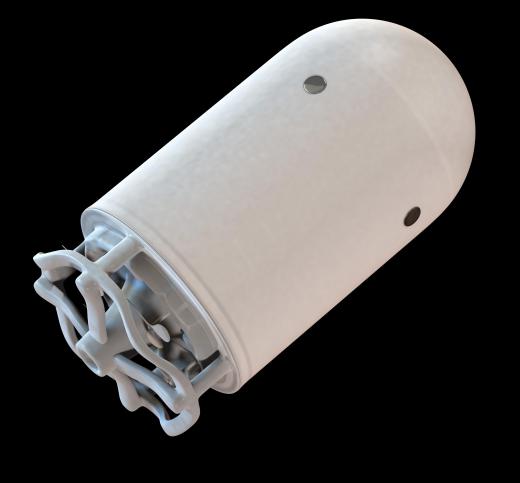What is a Nanotechnology Initiative?
 Dee Saale
Dee Saale
Nanotechnology is an application of engineering and science-based theories that create and use things on a very small scale. Scientists who attempt to study the basics of materials that exist because of their small size are called nanoscientists. The nanoscale varies from about 1 nanometer to 100 nanometers. In lay terms, it means that the smallest nanoparticles are still larger than an atom or a molecule, but smaller than an object viewed under a microscope.
In the United States, the National Nanotechnology Initiative (NNI) was created to provide a federal project for the research and development of nanotechnology. The goal is for the NNI to serve as a hub for the federal agencies that need to collaborate and communicate their goals and strategies in the field of nanotechnology. Goals of the NNI include advancing research and development, making new technologies beneficial to the public, developing educational programs that will further nanotechnology, and ensure that nanotechnology development is responsible. The federal agencies involved in the NNI are working to create new drugs, products, and medical devices, all to serve the public better.

NNI centers offer opportunities and aid for research in a wide range of disciplines and from a variety of sectors, such as academia, government, and industry laboratories. Such research will lead to advancement in knowledge and build relationships that will improve the study of nanotechnology and the nanotechnology initiative. For example, at the University of Colorado in Boulder the National Science Foundation has funded the Center for Extreme Ultraviolet Science and Technology, the Department of Energy has the Center for Nanophase Materials Science at Oak Ridge National Laboratory, and the Department of Defense has the Institute for Nanoscience at the Naval Research Laboratory.

In 2001, India began their National Nanoscience and Technology Intiative (NSTI). The Indian nanotechnology initiative includes three main areas: research, education, and industry. In addition, India is designing laboratories and equipment, to look deeper into the world of nanotechnology. Interesting projects include using carbon nanotubes to measure the flow of fluids, synthesizing and manipulating the nanotube properties, and using biosynthesis to create nanomaterials.
Israel also has its own initiative, the Israeli National Nanotechnology Initiative (INNI). Through their initiative, they will set up a national policy for nanotechnology funding, create a research and educational program based on nanotechnology, and promote local industry that is based on nanotechnology. The Israelis have been working on finding funding, specifically for additional research and development.
Europe’s version of a nanotechnology initiative is called the European Commission. The Commission is in charge of making policies and finding funding for nanotechnology. The goal of the Commission is to fund research that is beneficial to society and that will allow industries to compete in the fields of nanotechnology across Europe. Proposals have been requested for nanomedicine, such as for drugs that will fight cancer; nanomaterials for water conservation; and nanotechnology for new technologies in the energy industries.
AS FEATURED ON:
AS FEATURED ON:












Discuss this Article
Post your comments